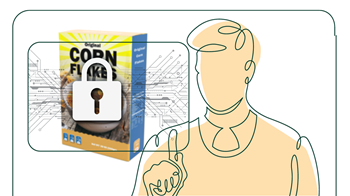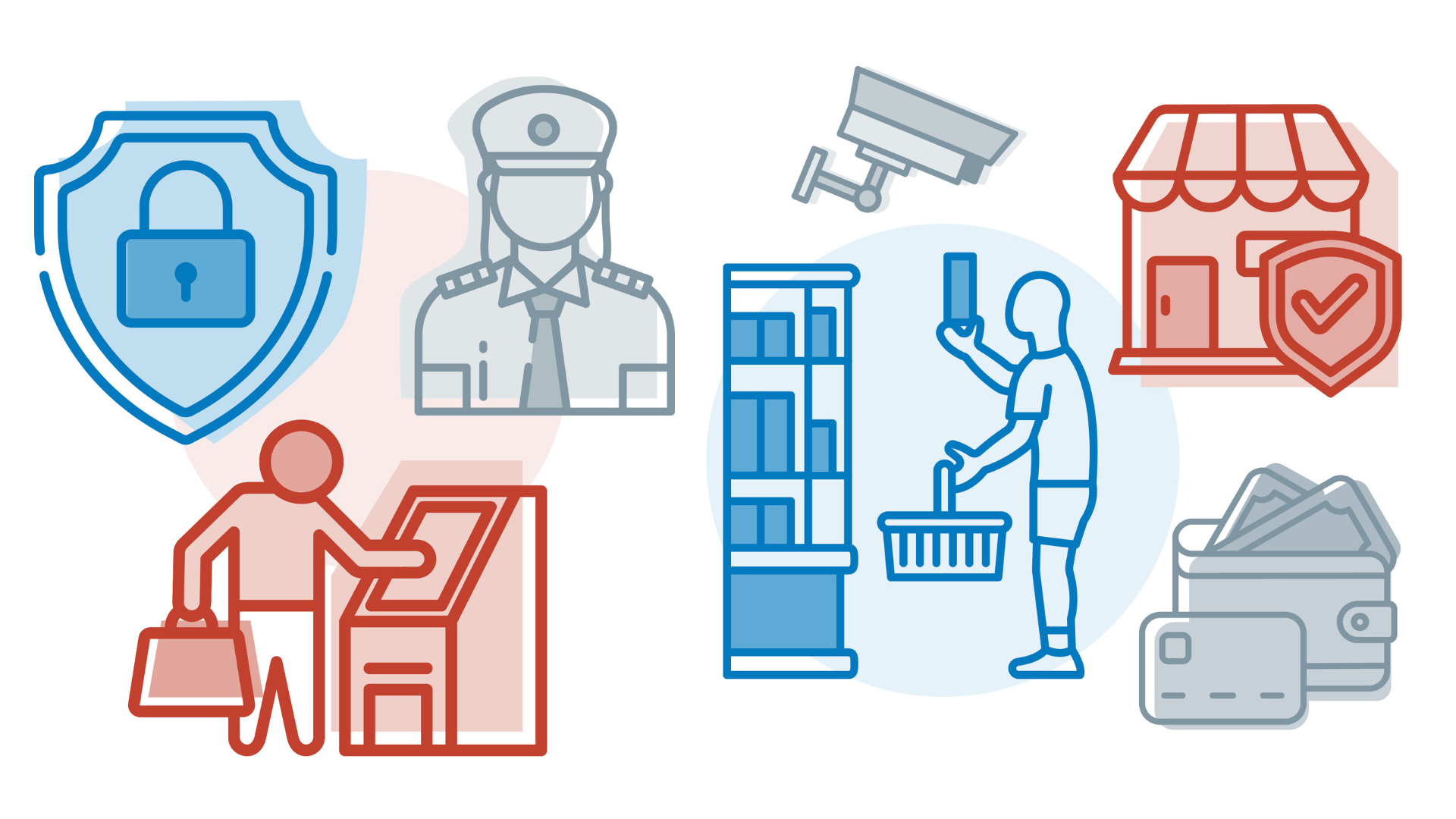Cybersecurity Strategies to Protect Your Business and Consumers
This is the seventh installment of FMI's Technology Blog Series, which explores digital innovations for the food industry and shares compelling insights from our research.
By: Doug Baker, Vice President, Industry Relations, FMI

The food industry prides itself on providing safe, high-quality products to consumers, and fraudsters are constantly innovating, seeking ways to exploit vulnerabilities in the food supply chain for financial gain. From counterfeiting brand names to tampering with digital records, these malicious activities damage businesses and pose a serious threat to public health.
Fortunately, cybersecurity plays a vital role in combating food fraud. By implementing robust cybersecurity measures, food businesses can build a strong defense against these threats, protecting their bottom line and customers.
Combating Specific Fraudulent Activities
Counterfeit Products: Online marketplaces have become a breeding ground for counterfeit food products. Here, cybersecurity solutions like advanced image recognition and machine learning algorithms can be deployed. These tools can analyze product images and descriptions, identifying anomalies that might indicate a counterfeit. They can then flag these items for further investigation, preventing them from reaching consumers.
Tampering with Digital Records: Food safety relies heavily on accurate digital records of a product's journey from farm to fork. These records track everything from origin and processing to transportation and storage. Fraudsters may attempt to manipulate these records to mask the true source or quality of food, potentially introducing allergens or expired ingredients into the supply chain. Blockchain technology offers a secure and transparent solution. By creating a tamper-evident digital ledger, blockchain ensures data integrity. Every step in the food's journey is recorded and cryptographically linked, making it nearly impossible for malicious actors to alter records undetected. This not only safeguards consumer health but also provides valuable traceability data in the event of a recall.
Online Sale of Expired or Spoiled Goods: Perishable goods require careful monitoring to ensure they reach consumers in a safe condition. Here, Internet of Things (IoT) sensors attached to packaging can track temperature, humidity, and other critical factors in real-time. This data can be fed into AI analytics systems that continuously monitor product conditions. Deviations from acceptable parameters can trigger alerts, allowing for timely intervention and preventing the sale of spoiled or unsafe food.
Beyond the Technology
While technology plays a crucial role, a comprehensive cybersecurity strategy extends beyond just the tools themselves. Regularly identify and patch vulnerabilities in your IT systems, including those of third-party vendors. Outdated software is a prime target for attackers, so prioritize timely updates and system maintenance. Additionally, cybersecurity teams should develop a clear incident response plan that outlines the steps to be taken in the event of a cybersecurity breach. This plan should include data recovery protocols, communication strategies for notifying stakeholders and procedures for cooperating with law enforcement if necessary. Perhaps most importantly, fostering a strong security culture throughout your entire organization is vital. Regular training for all employees on cybersecurity best practices, including password hygiene and phishing awareness, can significantly reduce the risk of human error.
Protecting Your Business and Consumers
By implementing these cybersecurity strategies, food businesses can significantly reduce their vulnerability to fraud. This not only protects their financial well-being but also ensures the safety and trust of their customers. A robust cybersecurity posture demonstrates your commitment to food safety and builds consumer confidence in your brand. The fight against food fraud is an ongoing battle. However, by embracing a proactive and multifaceted approach to cybersecurity, food retail businesses can build a strong defense that safeguards their operations and ensures the safety of the food that reaches consumers' tables.
Industry Partnership
Partnering with an industry ISAC is a good way to stay on top of trends and learn more about resources available to enhance cybersecurity in the food retail industry. One such organization is the Retail & Hospitality ISAC, visit rhisac.org/FMI to learn more.


 Industry Topics address your specific area of expertise with resources, reports, events and more.
Industry Topics address your specific area of expertise with resources, reports, events and more.
 Our Research covers consumer behavior and retail operation benchmarks so you can make informed business decisions.
Our Research covers consumer behavior and retail operation benchmarks so you can make informed business decisions.
 Events and Education including online and in-person help you advance your food retail career.
Events and Education including online and in-person help you advance your food retail career.
 Food Safety training, resources and guidance that help you create a company food safety culture.
Food Safety training, resources and guidance that help you create a company food safety culture.
 Government Affairs work — federal and state — on the latest food industry policy, regulatory and legislative issues.
Government Affairs work — federal and state — on the latest food industry policy, regulatory and legislative issues.
 Get Involved. From industry awards to newsletters and committees, these resources help you take advantage of your membership.
Get Involved. From industry awards to newsletters and committees, these resources help you take advantage of your membership.
 Best practices, guidance documents, infographics, signage and more for the food industry on the COVID-19 pandemic.
Best practices, guidance documents, infographics, signage and more for the food industry on the COVID-19 pandemic.
